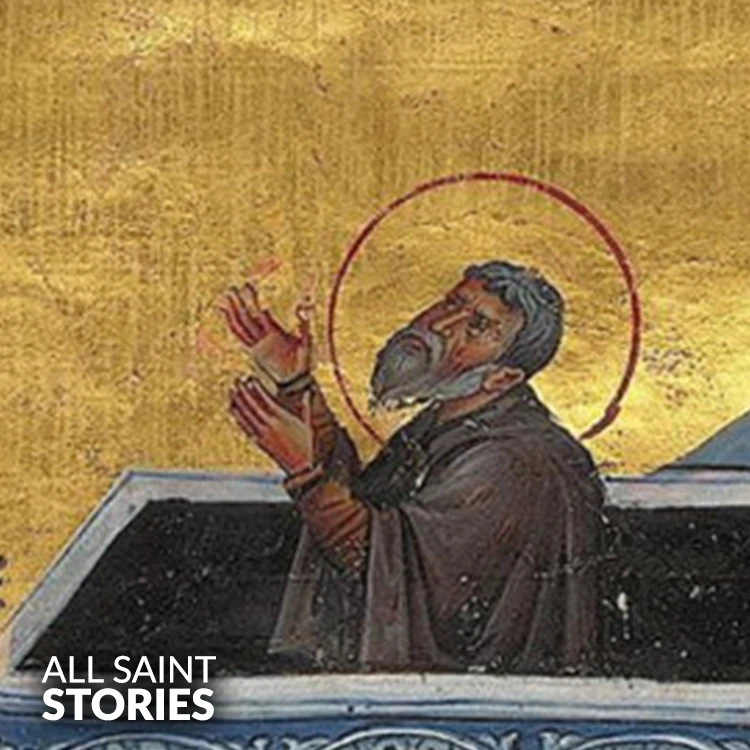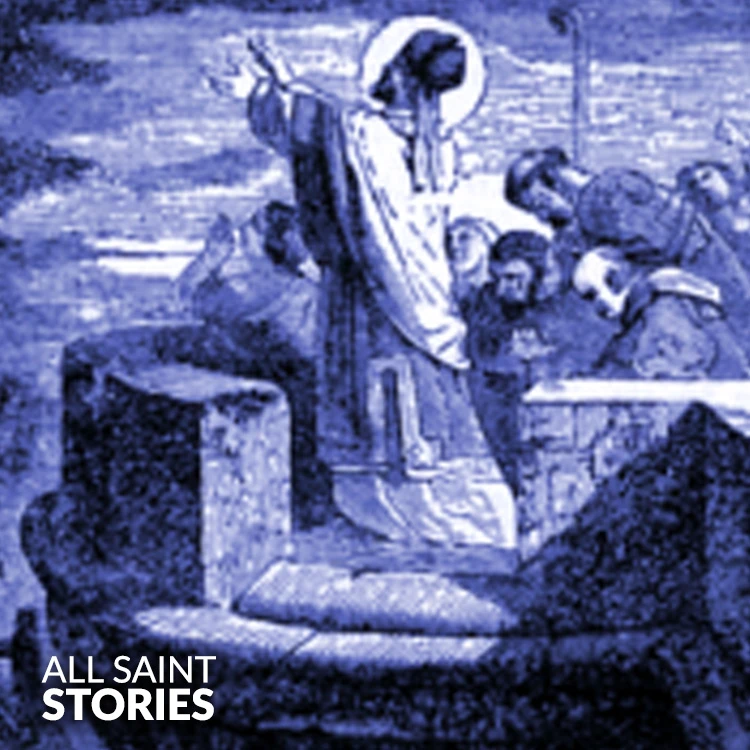St. James of Nisibis, wise bishop and steadfast defender of the faith, guide us in truth and perseverance. May we stand firm in Christ as you did in your trials. Pray for our strength and clarity in faith. Amen.
ST. JAMES OF NISIBIS
ST. JAMES OF NISIBIS

St. James of Nisibis was a 4th-century bishop renowned for his wisdom, miracles, and defense of orthodoxy against heresy. He was instrumental in shaping the early Syrian Christian Church.
St. James of Nisibis, also known as Mar Jacob of Nisibis, was a revered 4th-century Christian bishop and saint celebrated for his piety, theological insight, and miraculous deeds. Born around 280 in the region of Nisibis (modern-day Nusaybin in southeastern Turkey), James entered a life of asceticism from a young age. According to tradition, he lived for a time as a hermit in the mountains, dedicating himself to prayer, fasting, and contemplation, which earned him deep spiritual insight and the admiration of many.
He was eventually called from solitude to serve the Church and was appointed bishop of Nisibis around 308. During his tenure as bishop, James played a critical role in guiding his people through periods of religious conflict and external threat, notably the persecution under Emperor Licinius and later the pressures of the Persian Empire. He was a spiritual leader during a time when the Christian Church was gaining recognition and beginning to define orthodoxy.
St. James is known to have been a participant in the First Council of Nicaea in 325, which was convened by Emperor Constantine to address the Arian controversy. He staunchly defended the divinity of Christ and contributed to the theological debates that led to the formulation of the Nicene Creed. His opposition to Arianism earned him lasting respect within the Church.
Numerous miracles are attributed to James. One famous story recounts how he climbed Mount Ararat in search of Noah’s Ark and reportedly brought back a piece of the ark as proof. His intercession was also believed to have protected the city of Nisibis during the sieges by the Persians, particularly under the reign of Shapur II. When the Persian armies attacked, James was seen praying on the city walls, and many claimed that his prayers caused divine intervention, leading to the enemy’s retreat.
St. James established a theological school in Nisibis that would later become one of the most important centers of Christian learning in the East, especially under the leadership of his student and successor, St. Ephrem the Syrian. This school played a crucial role in shaping Syriac Christian theology and biblical interpretation.
He died on December 26, 350, and was buried in Nisibis, where his tomb became a site of pilgrimage. Despite the eventual conquest of the city by the Persians in the late 4th century, the memory and veneration of St. James endured. He is honored in both Eastern and Western traditions and is especially revered in the Syriac Orthodox, Assyrian Church of the East, and Armenian churches.
St. James of Nisibis stands as a model of episcopal leadership, theological clarity, and spiritual strength. His legacy continues to influence Eastern Christian thought and inspire those who seek wisdom rooted in prayer and service.
Video Not Found
The information on this website is compiled from various trusted sources. While we aim for accuracy, some details may be incomplete or contain discrepancies.
If you notice any errors or have additional information about this saint, please use the form on the left to share your suggestions. Your input helps us improve and maintain reliable content for everyone.
All submissions are reviewed carefully, and your personal details will remain confidential. Thank you for contributing to the accuracy and value of this resource.
Credits & Acknowledgments
- Anudina Visudhar (Malayalam) – Life of Saints for Everyday
by Msgr. Thomas Moothedan, M.A., D.D. - Saint Companions for Each Day
by A. J. M. Mausolfe & J. K. Mausolfe - US Catholic (Faith in Real Life) – Informational articles
- Wikipedia – General reference content and images
- Anastpaul.com – Saint images and reflections
- Pravachaka Sabdam (Malayalam) – Saint-related content and insights
We sincerely thank these authors and platforms for their valuable contributions. If we have unintentionally missed any attribution, please notify us, and we will make the correction promptly.
If you have any suggestion about ST. JAMES OF NISIBIS
Your suggestion will help improve the information about this saint. Your details will not be disclosed anywhere.
© 2026 Copyright @ www.allsaintstories.com



 English
English
 Italian
Italian
 French
French
 Spanish
Spanish
 Malayalam
Malayalam
 Russian
Russian
 Korean
Korean
 Sinhala
Sinhala
 Japanese
Japanese
 Arabic
Arabic
 Portuguese
Portuguese
 Bantu
Bantu
 Greek
Greek
 German
German
 Dutch
Dutch
 Filipino
Filipino